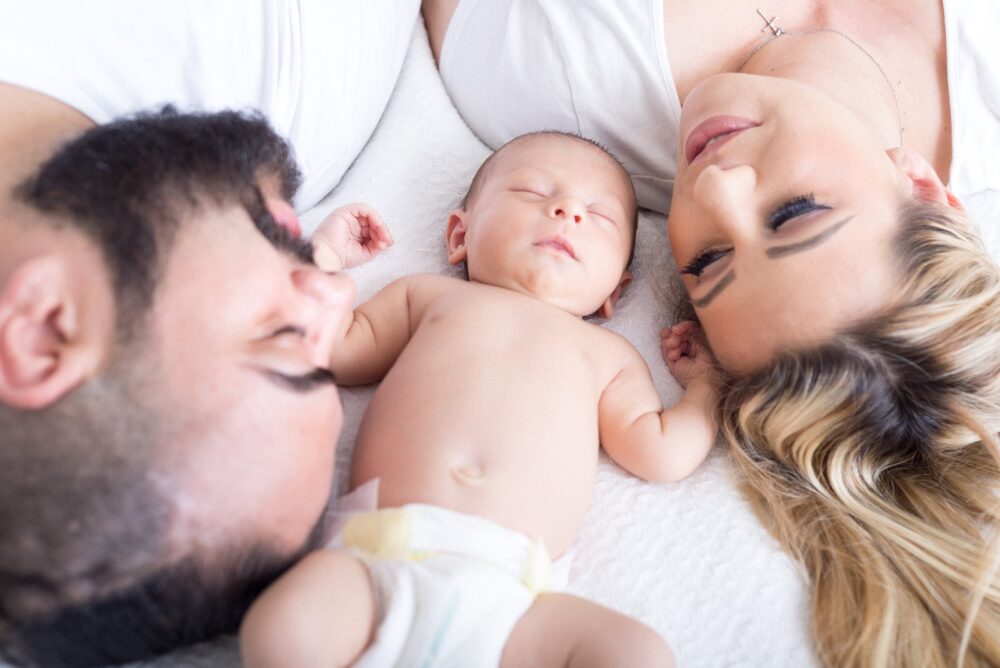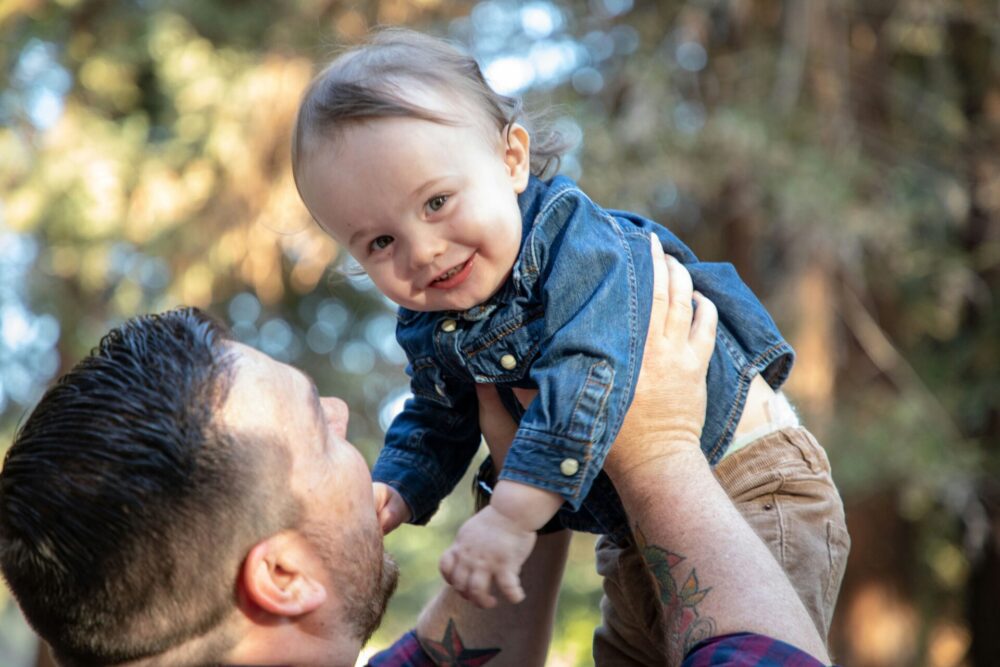BLOG
Navigating the Legal Landscape: UK Laws on IVF for Lesbian Couples
Articles, IVF
Share this:
All of our blog posts are written, edited, or produced by the Kind iVF Content Team. This is a collaboration between our expert writers, health editors, and the leading researchers and senior doctors at our clinics across the UK.
Key Takeaways
- UK laws on IVF for lesbian couples prioritize equality and inclusion
- Understanding eligibility criteria is crucial for accessing fertility treatment
- Clinics play a key role in guiding lesbian couples through the IVF process
- Establishing legal rights around parentage and parental responsibility is important for lesbian couples
- Considerations around surrogacy arrangements are important for lesbian couples
Equality and Inclusion: The Legal Framework for Lesbian Couples in the UK
The UK has recently been at the forefront of promoting equality and non-discrimination in the provision of healthcare services. This commitment is reflected in the legal framework that governs the rights and access to fertility treatment for lesbian couples. Over the past two decades, the UK has made significant strides in recognizing same-sex relationships and ensuring that lesbian couples are afforded the same rights and opportunities as their heterosexual counterparts when it comes to starting a family.
The landmark Civil Partnership Act of 2004 and the subsequent legalization of same-sex marriage in 2013 have been instrumental in establishing the legal recognition of same-sex relationships in the UK. These legislative changes have paved the way for lesbian couples to access fertility treatment and have their relationships and parental rights legally recognized. The Equality Act of 2010 further reinforced the UK’s commitment to non-discrimination, prohibiting discrimination on the grounds of sexual orientation in the provision of goods, facilities, and services, including healthcare.
The legal landscape surrounding fertility treatment for lesbian couples in the UK is complex, but it is underpinned by a strong foundation of equality and inclusion. Fertility clinics are required to adhere to the guidelines set forth by the Human Fertilisation and Embryology Authority (HFEA), the regulatory body responsible for overseeing fertility treatment in the UK. These guidelines ensure that lesbian couples are treated with the same respect and consideration as any other individuals or couples seeking fertility treatment, regardless of their sexual orientation.
Accessing Fertility Treatment: Understanding the Eligibility Criteria
The HFEA’s eligibility criteria for accessing IVF and other fertility treatments are designed to ensure that the welfare of any child born as a result of the treatment is the primary consideration. These criteria apply equally to all individuals and couples, regardless of their sexual orientation, for both NHS and other forms of IVF.
One of the key requirements set by the HFEA is the need for a “supportive parenting environment.” This means that fertility clinics must assess the ability of the prospective parents to provide a stable and nurturing environment for any child born as a result of the treatment. For lesbian couples, this assessment may involve considering factors such as the strength of their relationship, their financial stability, and their support network.
It is important to note that the “supportive parenting environment” requirement is not a barrier to lesbian couples accessing fertility treatment. Fertility clinics are required to take a holistic and non-discriminatory approach when assessing the suitability of prospective parents, focusing on their ability to provide a loving and stable home for a child, rather than their sexual orientation.
In recent years, there has been a growing recognition that the traditional model of a “supportive parenting environment” may not always align with the diverse family structures and lived experiences of LGBTQ+ individuals and couples. Fertility clinics are increasingly being encouraged to adopt a more inclusive and flexible approach when evaluating the eligibility of lesbian couples, taking into account the unique challenges and considerations they may face.
The Role of the Clinic: Navigating the IVF Process as a Lesbian Couple
Fertility clinics in the UK have a responsibility to ensure that they provide a welcoming and inclusive environment for all individuals and couples seeking fertility treatment, including lesbian couples. This means creating a culture of openness, understanding, and sensitivity to the specific needs and concerns of lesbian couples.
One of the key ways in which fertility clinics can foster an inclusive environment is through the training and education of their staff. Clinicians and support staff should be equipped with the knowledge and skills to effectively communicate with and support lesbian couples throughout the IVF process. This includes understanding the legal and social challenges that lesbian couples may face, as well as being sensitive to the emotional and psychological aspects of their journey.
Open communication and transparency are also essential in building trust and ensuring a positive experience for lesbian couples. Fertility clinics should encourage and facilitate open dialogue, allowing lesbian couples to express their concerns, ask questions, and feel heard and understood. This can help to alleviate any anxieties or uncertainties that may arise during the IVF process.
Furthermore, fertility clinics should strive to create a physical environment that is welcoming and inclusive for lesbian couples. This may involve ensuring that promotional materials and signage reflect the diversity of the clinic’s patient population, and that the clinic’s policies and procedures are inclusive and respectful of same-sex relationships.
By prioritizing inclusivity and providing a supportive and understanding environment, fertility clinics can play a crucial role in ensuring that the IVF journey for lesbian couples is as smooth and positive as possible.
Parentage and Parental Responsibility: Establishing Legal Rights
One of the key considerations for lesbian couples seeking fertility treatment in the UK is the legal recognition of their parental rights and responsibilities. The UK’s legal framework has evolved to ensure that both partners in a lesbian couple are recognized as the child’s legal parents, regardless of their biological relationship to the child.
Under the Human Fertilisation and Embryology Act 2008, the non-biological partner in a lesbian couple can be named as the child’s second parent on the birth certificate, provided that certain criteria are met. This includes the requirement that the non-biological partner consents to being treated as the child’s parent and that the treatment takes place in a licensed fertility clinic.
In cases where the non-biological partner is not named on the birth certificate, they can still secure their legal rights and responsibilities through the process of obtaining a parental order or adoption. A parental order is a legal mechanism that transfers the legal parentage of the child from the surrogate (in the case of surrogacy arrangements) to the intended parents, including the non-biological partner. Adoption, on the other hand, is a process that allows the non-biological partner to legally adopt the child and become their legal parent.
It is important for lesbian couples to seek legal advice and guidance throughout the process of establishing their parental rights and responsibilities. This can help to ensure that the legal framework is navigated effectively and that the rights and interests of all parties involved are protected.
Surrogacy Arrangements: Considerations for Lesbian Couples
Surrogacy is another option that lesbian couples in the UK may consider when building their families. However, the legal landscape surrounding surrogacy in the UK is complex and requires careful navigation.
The UK’s legal framework for surrogacy is primarily governed by the Surrogacy Arrangements Act 1985 and the Human Fertilisation and Embryology Act 2008. These laws set out the legal requirements and restrictions around surrogacy arrangements, including the prohibition of commercial surrogacy and the need for all parties involved to be UK residents.
For lesbian couples, the surrogacy process can present additional challenges. Navigating the legal and practical aspects of surrogacy, such as the establishment of parental rights and the management of the surrogate’s involvement, can be particularly complex. Lesbian couples may also face societal biases and stigma when pursuing surrogacy, which can add to the emotional and psychological burden of the process.
It is crucial for lesbian couples considering surrogacy to seek legal advice and guidance from professionals who are well-versed in the specific challenges and considerations faced by LGBTQ+ individuals and couples. This can help to ensure that the surrogacy arrangement is structured in a way that protects the rights and interests of all parties involved, including the child.
Adoption and Fostering: Alternative Paths to Parenthood
In addition to fertility treatment and surrogacy, adoption and fostering are also viable options for lesbian couples in the UK who are seeking to build their families.
The UK’s adoption and fostering systems have undergone significant changes in recent years to become more inclusive and welcoming of LGBTQ+ individuals and couples. The Adoption and Children Act 2002 and the Equality Act 2010 have played a crucial role in ensuring that same-sex couples are afforded the same rights and opportunities as their heterosexual counterparts when it comes to adopting or fostering children.
Lesbian couples who choose to pursue adoption or fostering may face unique challenges, such as navigating the assessment process, addressing any biases or preconceptions held by adoption or fostering agencies, and managing the emotional and psychological aspects of the journey. However, there are a range of support services and resources available to assist lesbian couples throughout the process.
Organizations such as New Family Social, a UK-based charity that supports LGBTQ+ adoptive and foster families, can provide valuable guidance and support to lesbian couples navigating the adoption or fostering systems. These organizations can help to connect couples with experienced professionals, facilitate access to relevant training and resources, and advocate for greater inclusivity and accessibility within the adoption and fostering sectors.
Financial Implications: Funding IVF and Other Fertility Treatments
The cost of IVF and other fertility treatments in the UK can be a significant financial burden for many individuals and couples, including lesbian couples. The average cost of a single cycle of IVF in the UK can range from £5,000 to £15,000, depending on the clinic and the specific treatment required.
While the National Health Service (NHS) does provide some funding for fertility treatment, the eligibility criteria and the level of funding available can vary across different regions of the UK. Lesbian couples may face additional challenges in accessing NHS funding, as some Clinical Commissioning Groups (CCGs) have historically had more restrictive policies when it comes to funding fertility treatment for same-sex couples.
To address these financial barriers, there are a number of options available to lesbian couples seeking fertility treatment in the UK. Some couples may choose to explore private insurance coverage or seek out financial assistance from charities and support organizations that specialize in helping LGBTQ+ individuals and couples access fertility treatment.
It is important for lesbian couples to thoroughly research and understand the financial implications of their fertility treatment options, as well as to seek guidance from fertility clinics and financial advisors to ensure that they are making informed decisions and accessing all available sources of support and funding.
Navigating the Emotional Journey: Support and Counselling Services
The journey of building a family through fertility treatment, surrogacy, adoption, or fostering can be an emotionally and psychologically challenging experience for any individual or couple. For lesbian couples, this journey may be further complicated by the unique social and legal challenges they face.
Accessing appropriate support and counselling services can be crucial in helping lesbian couples navigate the emotional aspects of their family-building journey. Fertility clinics in the UK are required to provide counselling services to all individuals and couples seeking fertility treatment, and these services should be tailored to address the specific needs and concerns of lesbian couples.
Beyond the support offered by fertility clinics, there are also a number of specialized support organizations and resources available to lesbian couples in the UK. These include LGBTQ+ parenting support groups, online forums, and counselling services that are specifically designed to address the unique emotional and psychological challenges faced by LGBTQ+ individuals and families.
By accessing these support services, lesbian couples can find a safe and inclusive space to share their experiences, seek guidance, and develop coping strategies to manage the emotional and psychological aspects of their family-building journey. This can be particularly important during times of stress, uncertainty, or setbacks, as lesbian couples may face additional societal and legal barriers that can compound the emotional challenges they encounter.
Advocating for Change: Ongoing Efforts to Improve Accessibility and Inclusivity
While the UK has made significant progress in ensuring that lesbian couples have access to fertility treatment and are afforded the same legal rights and protections as their heterosexual counterparts, there is still work to be done to improve the accessibility and inclusivity of these services.
Advocacy groups and organizations, such as Stonewall, the LGBT Foundation, and the Lesbian and Gay Foundation, have been at the forefront of pushing for greater equality and inclusion in the provision of healthcare services, including fertility treatment. These organizations have played a crucial role in raising awareness, challenging discriminatory practices, and advocating for policy changes that better support the needs of LGBTQ+ individuals and couples.
One of the key areas of focus for these advocacy groups has been addressing the persistent barriers and inequalities that lesbian couples face when accessing fertility treatment. This includes pushing for more consistent and inclusive funding policies across different regions of the UK, as well as challenging the societal biases and stigma that can still exist within the healthcare system.
Additionally, these advocacy groups have been instrumental in highlighting the unique challenges faced by LGBTQ+ individuals and couples when it comes to building their families, and in advocating for the development of more inclusive and responsive support services and resources.
The ongoing efforts of these advocacy groups, combined with the continued evolution of the UK’s legal and social landscape, have helped to pave the way for greater accessibility and inclusivity in the provision of fertility treatment and other family-building options for lesbian couples. However, there is still progress to be made, and the voices of these advocacy groups will continue to be crucial in driving positive change and ensuring that the rights and needs of lesbian couples are fully recognized and supported.
FAQs
What are the current UK laws on IVF for lesbian couples?
In the UK, lesbian couples have the same rights to access IVF treatment as heterosexual couples. This is due to the Equality Act 2010, which prohibits discrimination on the grounds of sexual orientation in the provision of goods and services, including fertility treatment.
Do lesbian couples have the same rights to IVF as heterosexual couples?
Yes, under UK law, lesbian couples have the same rights to access IVF treatment as heterosexual couples. This is in line with the Equality Act 2010, which prohibits discrimination on the grounds of sexual orientation in the provision of goods and services, including fertility treatment.
Are there any specific legal requirements for lesbian couples seeking IVF in the UK?
Lesbian couples seeking IVF in the UK are subject to the same legal requirements as heterosexual couples. This includes meeting the eligibility criteria set out by the Human Fertilisation and Embryology Authority (HFEA), which regulates fertility treatment in the UK.
Can lesbian couples use donor sperm for IVF in the UK?
Yes, lesbian couples in the UK can use donor sperm for IVF treatment. The HFEA regulates the use of donor sperm and sets out the legal requirements for its use in fertility treatment, including IVF.
Are there any legal considerations for lesbian couples using a known sperm donor for IVF in the UK?
Lesbian couples using a known sperm donor for IVF in the UK should be aware of the legal considerations surrounding parental rights and responsibilities. It is important to seek legal advice and have a legal agreement in place to clarify the rights and responsibilities of all parties involved.
Share this:



